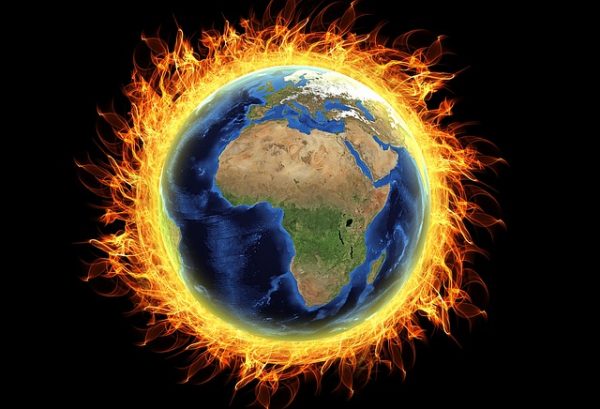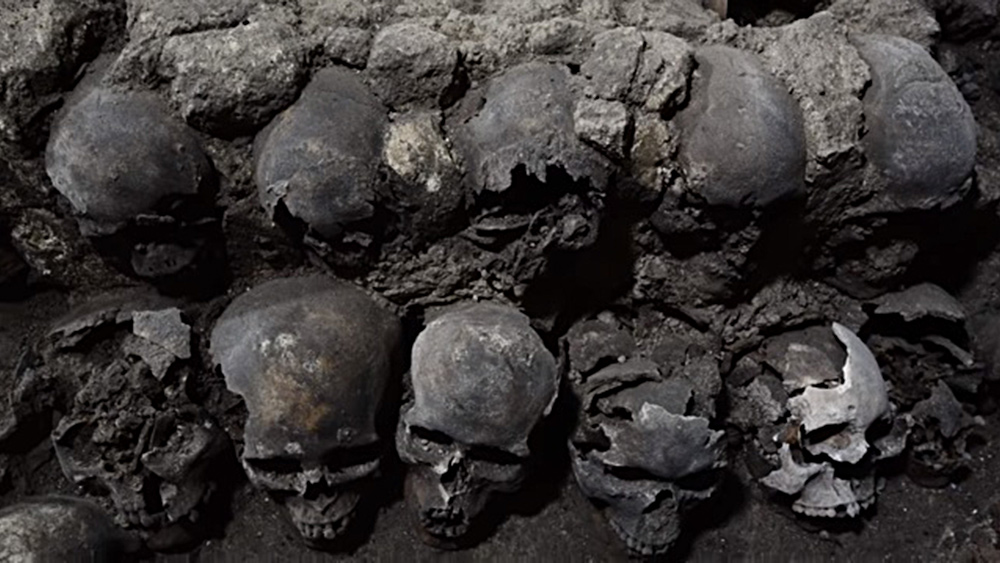Lunatic science conspiracy theory: “Global warming killed the Mayans” 1500 years before the invention of the combustion engine
04/10/2017 / By Ethan Huff

Some of the conflicts that took place thousands of years ago between opposing nations may have been influenced by the weather, rather than the usual suspects such as resources and religion, claims a new study. Continuing to push the narrative that human existence is somehow destroying the planet, new research published in the journal Quaternary Science Reviews suggests that global warming, of all things, was somehow responsible for the Mayan aggression that ultimately led to its demise… even though the combustion engine that’s blamed for global warming wasn’t invented until 1500 years later.
According to these liberal-leaning researchers, the Mayan conflicts that spanned the time frame of 350 through 900 A.D. could have been caused by temperatures in the region being too hot. The Mayans supposedly became angered by this heat, which was also killing their food crops, and they thus began to fight other nearby civilizations to maintain power and influence. As many as 144 different Mayan conflicts, the study suggests, were quite possibly a factor of this global warming phenomenon.
“The change in conflict levels between 350 and 900 A.D. was considerable,” the paper contends. “We found that there was a substantial increase in conflict in the approximately 500 years covered by the dataset. The number of conflicts increased from zero to three every 25 years in the first two centuries to 24 conflicts every 25 years near the end of the period.”
Even though the ancient Mayans didn’t drive cars or have industrial feedlots for their cattle – these being among the primary factors blamed for supposed man-made climate change – the Mayans were apparently still suffering through what Al Gore and others allege is still to this day the biggest threat to mankind. Hot weather conditions in the Yucatán Peninsula meant increased aggression, which in turn translated to more war, death, and destruction.
The elite are getting desperate, pushing crazy revisionist history narratives to advance their climate change agenda
As silly as it sounds, this hypothesis as to how the Mayan civilization went extinct is now published in a mainstream scientific journal, where it will be used as “evidence” to suggest that the nations of the world today need to do more to combat climate change. Whether with new carbon taxes, mandatory reductions in consumption, or some other form of population control, the narrative will now be: If we don’t do something now to fight climate change, humanity could go extinct just like the Mayans.
It wasn’t drought or lack of rain that killed off the Mayans, these researchers claim, but simply hot weather that was uncomfortable, leading to increased levels of agitation. No longer could the Mayan rulers hold opulent festivals and other indicators of power and wealth because of this heat, so they began to fight – for no other apparent reason other than being uncomfortable.
“With crop levels low, Mayan leaders could no longer rely on brash festivals or building projects to keep their subjects happy,” explains the Daily Mail Online. “So they resorted to power struggles and war instead which finished the mysterious civilisation off.”
At the end of the day, food shortages seem to be at the root of the Mayan conflicts that ultimately resulted in the civilization coming to an end. But for the first time, the alleged climate conditions that caused these shortages are being blamed on climate change – even during a period in history when climate change caused by heavy industry would have been impossible, simply because such industry didn’t even exist at this time.
The study was reportedly funded by government agencies that are set to have their funds cut by new Trump Administration budget changes. The authors bemoan this, but anyone with common sense can see, through this ridiculous study, precisely why such funding deserves to be cut.
Sources:
Tagged Under: climate change, global warming, mayans




















